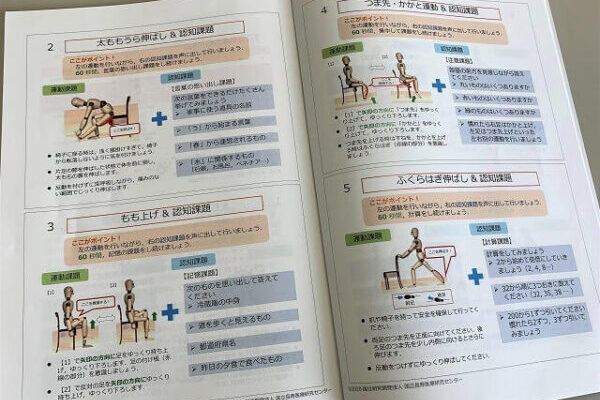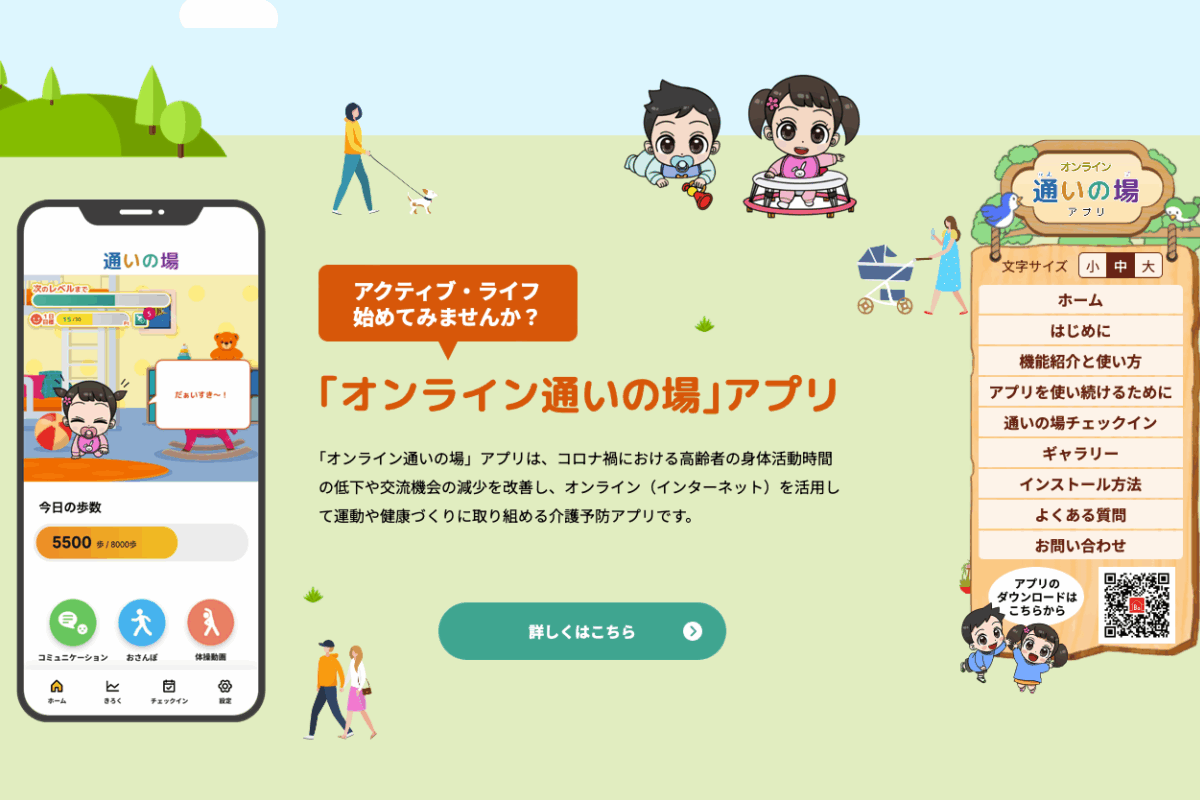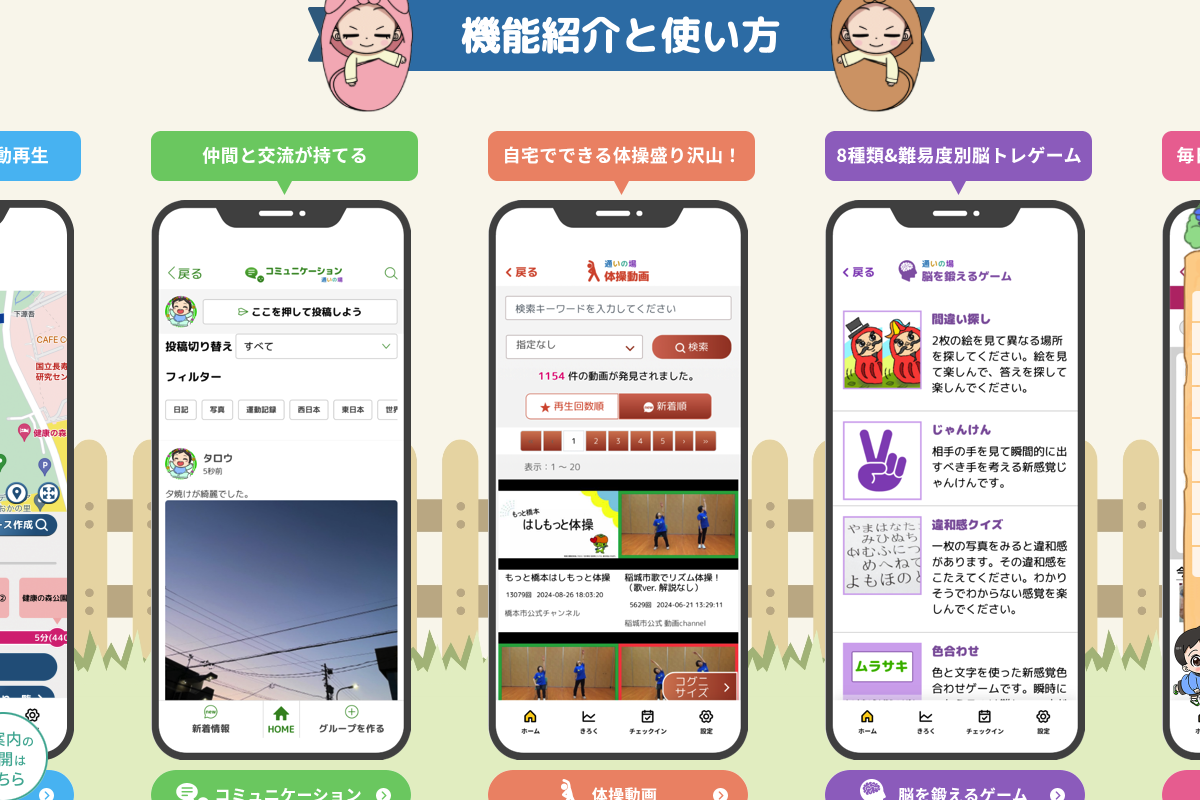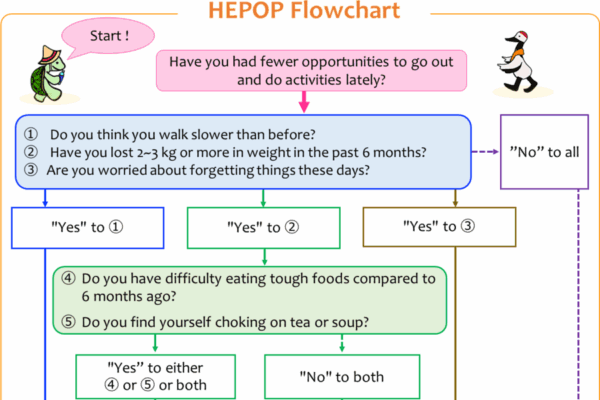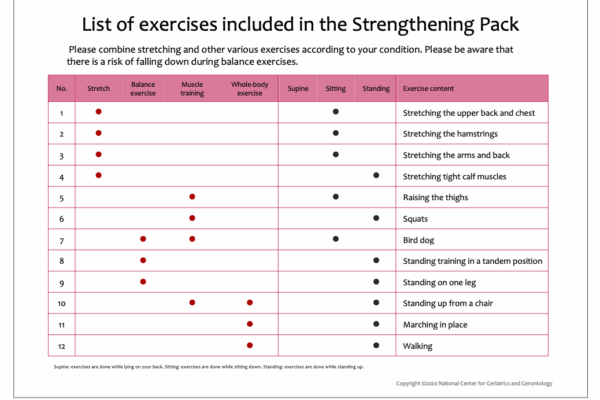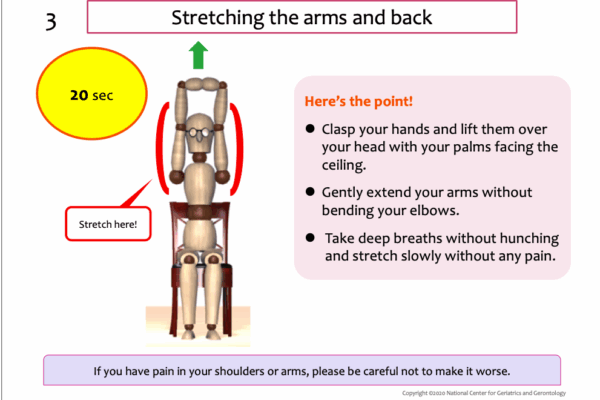2021 HAPI Japan Best Practice Winner
THE PROBLEM
Frailty is defined as a decline in physical and mental functions due to aging. It is recognized as the first step toward needing nursing care. Experts agree that exercise, nutrition, and social participation are critical to prevent frailty, and there are many initiatives that seek to target those areas. But when the COVID-19 pandemic struck in 2020, and as the world realized that older people were at extremely high risk, many older people began to stay indoors and avoid going out in public for fear of infection. While that protected them from the virus, the loss of opportunities to interact with other people and enjoy physical activities increased the risk of a rapid onset of frailty. Prevention programs were urgently needed that could be easily implemented at home to maintain the physical and mental health of older people.
THE INNOVATION
In April 2020, NCGG brought together a multidisciplinary team of physicians, therapists, and dieticians to create an evidence-based Home Exercise Program for Older People (HEPOP). A “Home Activity Guide 2020 (NCGG-HEPOP 2020)” was published one month later as a booklet and online, and presents a menu of exercises and activities that can be easily practiced at home. The following month, it was also incorporated into the Ministry of Health, Labour and Welfare’s Online Kayoinoba (gathering place) app. Unlike other general exercise manuals, it is designed to enable users to select a menu most suited for their individual physical and mental condition by simply answering a few elementary questions. It also takes into account precautions based on medical history that would need to be considered in following the exercises. The guide is simple enough for anyone to follow, yet at the same time serves as a set of medical and professional guidance.
This guide can be freely viewed and downloaded from the website of the National Center for Geriatrics and Gerontology (NCGG), and a video version was made available on YouTube. The content was translated into multiple languages—including English, Chinese, Thai, and Russian—in response to requests from overseas. It has been widely used by many municipal governments, medical and nursing facilities, and private companies. An international collaborative study was conducted with Mahidol University in Thailand to verify the effectiveness of HEPOP in both Thailand and Japan. The project has also expanded to create a similar program designed for those who are teleworking.


